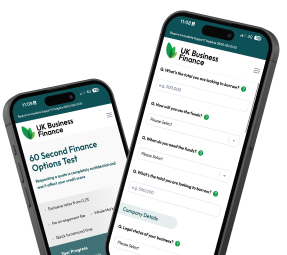Invoice Finance
Understand the different types of invoice finance and how they can it help your business
While debt is often seen as a negative, when utilised responsibly and appropriately, obtaining finance for your company can be a way of taking your business to the next level quicker than would be possible if you were solely relying on the company’s own cash reserves to fund the project. Third party finance can also be used to help stabilise cash flow, purchase key assets, and allow for the purchase of stock.
One of the most popular forms of commercial lending is invoice financing. Invoice finance comes in a range of forms; however, they all ultimately work towards the same principle which is releasing the cash tied up in unpaid invoices. The invoice financing company will advance you a set percentage – which could be up to 90% in some circumstances – as soon as you issue an invoice to a client. This takes away the uncertainty of when you will get paid for the work done, allowing for better cash flow management.
Solutions Based Funding Options
- UK's Leading Business Funders
- Free Brokerage Service
- Full Market Access
Invoice finance comes in three main forms:
- Invoice factoring – With an invoice factoring agreement, you will hand over your ledger to the factoring company, who will then assume responsibility for collecting the money owed by your clients and customers. While this does mean your customers will be made aware that you have entering into an invoice factoring arrangement, for those companies that do not have a robust credit collection process in place, handing over the responsibility for chasing up unpaid debt could be seen as a major plus point.
- Invoice discounting – Invoice discounting differs from invoice factoring in that the responsibility for liaising with clients and collecting the monies owed, remains with you and your company. This is a great option for those who would prefer to keep the fact that they have signed up to an invoice finance agreement a secret from their customers. As you will remain in charge of collecting payment from customers, you should ensure that you have the necessary processes in place to secure payment in a timely manner which can then be forwarded onto your invoice finance provider.
- Selective/Spot invoice finance – Rather than use your entire debtor book, a selective invoice financing arrangement allows you to advance the funds tied up in a selected number of invoices. The rest of your ledger will be collected by you in the usual way. This is a great option for those who have a fluctuating need for credit, as the amount of invoices you choose to finance can be changed depending on your situation at the time. This flexibility does mean that you will pay more in fees for the equivalent amount borrowed through a ‘whole of ledger’ factoring arrangement, however, in many cases it can still work out to be more cost-effective as you are only financing what you need at the time.
Advice on Finance Options
Arrange a free consultation with a finance and funding expert at Begbies Traynor Group – choose a time at your convenience and with no obligation.
Free ConsultationFurther Reading on Invoice Finance
Contact Begbies Traynor Group
Our Media Centre
Read our latest news, expert opinion pieces and articles covering the the professional and financial sector.







